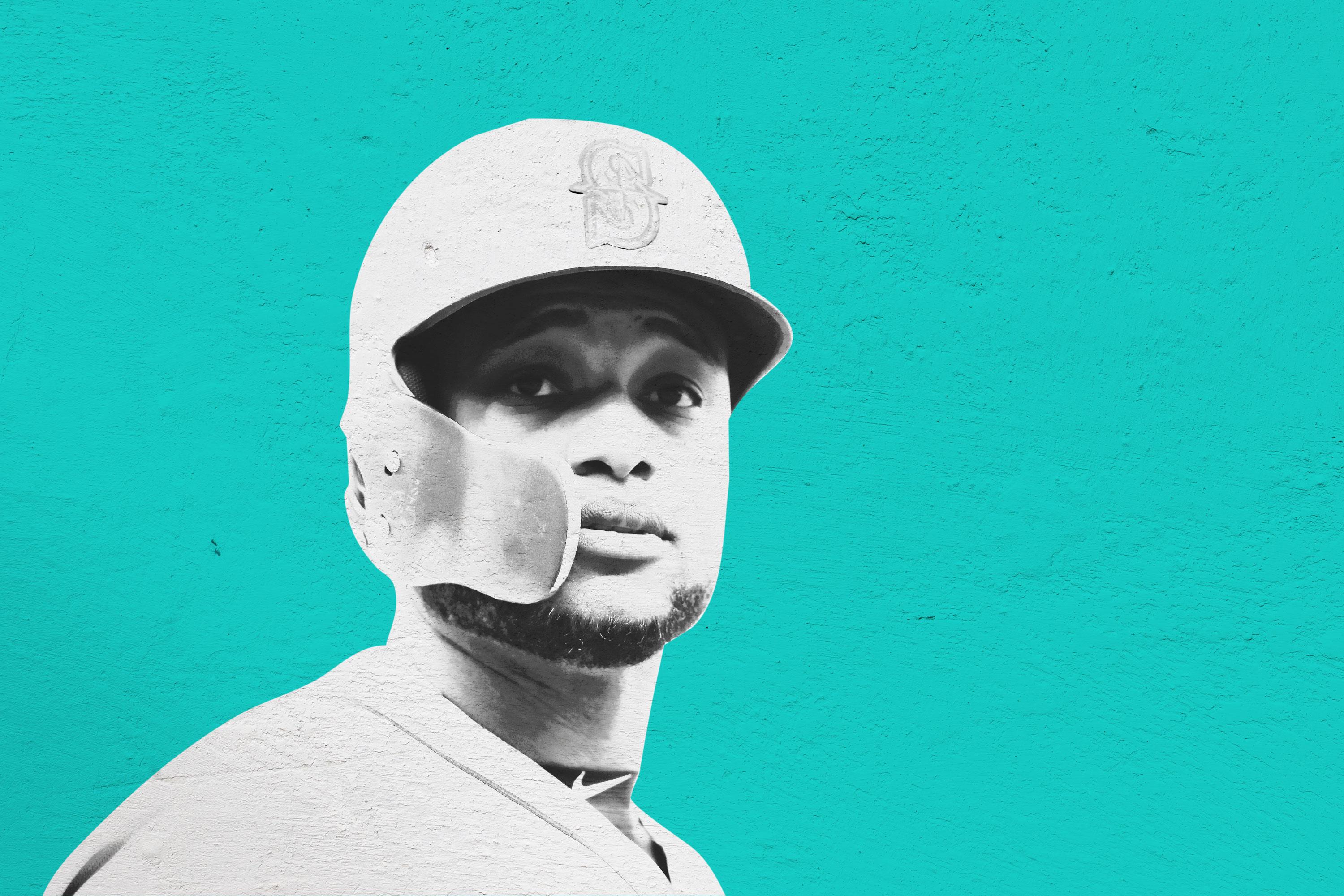Robinson Canó and the Familiar Disappointment of a Surprising Suspension
The Mariners star, who accepted an 80-game ban on Tuesday for violating MLB’s drug policy, denies using PEDs. Regardless, we’re again left pondering why even the best on the field might consider looking for edges off of it.
On Sunday, a left-handed pitcher named Brandon Mann made his major league debut for the Rangers, pitching 1 2/3 innings in relief. On Wednesday, he turns 34. Mann, who was drafted so long ago that the Devil Rays, who picked him, have long since changed their name, is the oldest American-born player to break into the big leagues since Alan Zinter arrived in 2002, the same month Mann was selected. He’s spent almost half his life pitching professionally, first for Tampa Bay’s farm teams and subsequently for the Dodgers’, the Pirates’, and the Athletics’. In and around those stints in affiliated ball, he spent two seasons pitching in Japan and parts of three seasons at two levels of the independent leagues. His Baseball-Reference page alone is a testament to how much he wanted what happened this week and how hard he chased the dream.
It makes some sort of sense, then, that when he was with Oakland in 2016, Mann tested positive for a steroid-like substance called Ostarine and was suspended for 80 games. According to a recent report, Mann told the A’s that he had “unknowingly purchased an over-the-counter supplement that included the substance.” Maybe he was telling the truth, or maybe he reached for a common cover story; maybe his late-blooming career is inspirational regardless, or maybe his past violation tarnishes the Disney-quality tale. Either way, we can knit ourselves a narrative that looks logical. Here was a guy who wanted to be a big leaguer; who was already older than the vast majority of rookies; who’d gotten tired of failing time after time; who wanted to provide for a future family. Whether he did or didn’t intentionally take Ostarine—and, if he did, whether it helped him or not—Mann was the type of player who has the most incentive to seek an extra advantage. We could, perhaps, envision ourselves succumbing to temptation in the same situation, depending on how clear-eyed we are about our own malleable morals.
When Mariners second baseman Robinson Canó accepted an 80-game suspension on Tuesday for taking furosemide, a diuretic that’s often used to mask performance-enhancing substances, we needed a new narrative. Canó, who’s hitting .287/.385/.441—good for a 129 wRC+, three points above his career average—is less than two years older than Mann, but he’s been in the big leagues since he was 22, piling up accomplishments and accolades while Mann was pitching to tiny crowds and for comparatively tiny salaries. By the end of the long-term deal Canó signed with Seattle in late 2013, he will have earned almost $300 million across his career. (Because of the suspension, he’ll have to scrape by on close to $12 million less than he otherwise would have.) He’s several seasons away from a contract year, and although he turned 35 last October, his decline has been graceful: He’s coming off back-to-back All-Star seasons, and he’s been a top-20 position player even since his Seattle tenure started at age 31. He’s won a World Series and a raft of Silver Sluggers and Gold Gloves. Even at 35, with plenty of production probably ahead, Canó’s career is barely below the historical standard for Hall of Fame second basemen; tack on another decent, scandal-free season, and induction—which now may be in doubt, if an evolving electorate doesn’t get him off the hook—would be all but assured.
Canó, of course, says he didn’t risk his reputation on purpose—that he’s never taken a banned performance-enhancer, and that the positive test for furosemide resulted from a careless prescription by a doctor in the Dominican who was attempting to treat a medical condition that may have had something to do with high blood pressure (or, you know, not). According to Canó’s account, he’s guilty only of ignorance and negligence. But because a positive test for a diuretic doesn’t automatically trigger a suspension under MLB’s basic agreement, we know that the league was able to demonstrate to the jointly appointed independent program administrator’s satisfaction that Canó did intend to hide his use of another substance. That may not completely prove his culpability, but it’s certainly suggestive.
Canó, who reportedly tested positive prior to Opening Day, presumably dropped the possibility of an appeal and accepted his punishment now either because the eventual verdict became unavoidable or because this was the most advantageous time; on Wednesday, he’ll undergo surgery to repair the bone in his hand that broke when he was hit by a pitch last week, although some reports say that there’s no tie between the injury and the news that Canó will serve the suspension. Thanks to a perplexing policy, he can start the clock on the suspension while he heals, which will allow him to return to the field in mid-August; until then, the M’s will likely plug the infield hole with Dee Gordon, who once served a similar suspension himself. If the Mariners, who were 1.5 games out of a playoff spot in both the AL West and the wild-card race when the day began, make the playoffs despite Canó’s extended absence—and for a few days, let’s spare long-suffering and newly mourning Mariners fans any insults about the likelihood of that—the terms of the sentence would also prevent him from playing in October.
It’s hard to put ourselves in the position of a player like Canó and think through the steps that would take him to a positive test. Few of us are as adept at our day jobs as Canó is at his, and those of us who are Hall of Fame–level teachers or plumbers or pediatricians haven’t been rewarded with the same fame and fortune. What possible reason would Canó—or, for that matter, Barry Bonds, Roger Clemens, or Alex Rodriguez—have to risk his reputation? If Mann is the archetype of a player who has the most to gain from a chemically-aided improvement, Canó represents the epitome of a player who has the most to lose. Below the first couple of paragraphs on his Wikipedia page, which read like a rough draft of his Hall of Fame plaque, the suspension sticks out like a sore thumb (or in Canó’s case, a sore pinkie).
But maybe that’s us thinking like the less fiendishly competitive people that most of us are. “Athletes are supercompetitive,” a doctor from the Mayo Clinic told The New York Times in a previous PED piece. “Many of them are almost sociopaths in an almost friendly way.” That’s painting with a pretty broad brush, but it’s true that it takes not only talent but an uncommon, uncompromising intensity to play one’s way from tin-roofed house in an impoverished area to unranked prospect to Rookie of the Year runner-up to four-time top-five finisher on the AL MVP ballot. To the extent that MLB selects players with hypercompetitive character traits—the kind of competitiveness it can take to play through the death of a loved one, a parasite that saps strength and energy, and a painful sports hernia, as Canó has since signing with Seattle—it also selects for stars who may be preprogrammed or conditioned to take suspect steps to stay stars, whether out of rivalry with others, to prove something to themselves, or out of a sense of self-confidence so strong that it creates blind spots about the odds of detection or the benefits of substance use and abuse. If Barry Bonds can be baseball’s best player and land lucrative contracts on nothing stronger than protein powder and still feel the need to bulk up and be better, it shouldn’t shock us when anyone else is accused of acting in a similar way.
Neither body type nor slugging percentage nor JAWS score can perfectly predict who will take what when. “An athlete is always looking for an edge,” Eric Knott—a former fringy major leaguer in the Brandon Mann mold who admits to taking amphetamines but denies using steroids—told me for an essay in the newly released essay collection Upon Further Review. That drive doesn’t always prompt players to take PEDs, but nor does it always deactivate upon reaching 50 career WAR. Within the same essay, Dr. Charles Yesalis, a Penn State professor who’s been researching the non-medical use of performance-enhancing drugs and supplements since the 1980s, told me that some players—particularly stars who can more easily afford the expense—hire “teams of scientists, medical people, to make sure they don’t flunk drug tests.” No matter how sensitive the tests get, we will never be rid of every violator or the occasional news dump as unwelcome as the one Tuesday. Maybe we can make close to 30 teams out of MLB-caliber players who haven’t taken prohibited PEDs, but we probably can’t come up with 750 such standouts at the same time.
One prominent major league player suspended for PED-related activity (or even 19 in total suspended since the start of 2015) is an undesirable and disappointing development, but it doesn’t amount to a PED problem that spoils a sport. And one suspension shouldn’t always overshadow a decades-long body of work. Canó was suspended for something he took in his mid-30s, but he’s been a brilliant player for almost 15 years and, more recently, a philanthropist and purported role model to rookies. Even if the diuretic was designed to mask a more incriminating substance, it’s unlikely that all of Canó’s athletic exploits were made possible by PEDs, although he was circumstantially linked to the Biogenesis saga, which spreads today’s stain on his stats. Neither entirely absolving nor completely condemning Canó is an obvious course, although many fans and media members will lean in one absolutist direction that predated today; it’s easier to apply blanket labels to every case in a category—“good” or “bad,” “clean” or “dirty,” “in” or “out”—than it is to draw distinctions on a player-by-player basis.
Baseball, like most major sports, will always have players suspended for positive tests, and not all of them will be the Brandon Manns of the world, the ones we either never notice or can easily explain. Sports are played by imperfect people. Sadly but unsurprisingly, sometimes the ones whose flaws we find out about are the ones who come closest to perfection on the field.

